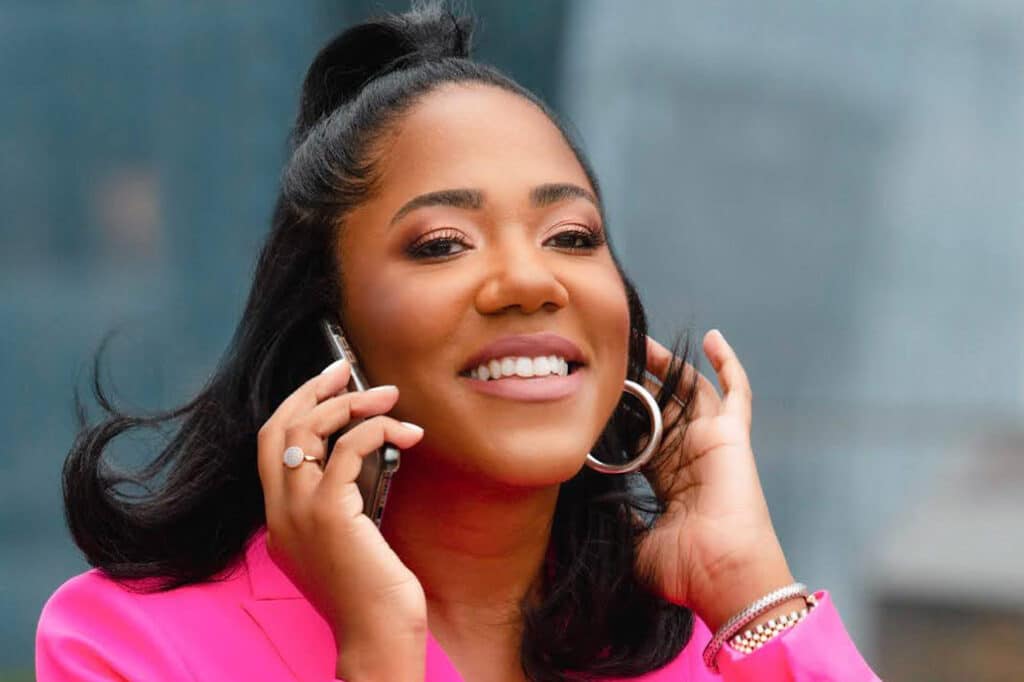What Do You Need? How Women of Color Can Take Ownership of Their Careers to Accelerate Their Path to Success by Lauren Wesley Wilson is a no-nonsense guidebook to unspoken workplace rules. Wilson is the founder of ColorComm, a membership community for women of color in the communications industry to connect and learn from each other.
Wilson was motivated to write her book—which covers everything from advice on making personal connections (always email, and keep it short and sweet) to avoiding people-pleasing—because she wants to address the unspoken rules in the workplace we often break simply because we don’t know them.
“I graduated in the middle of a recession and then got hired to work at a strategic media relations crisis communications firm,” Wilson says. “And at my very first job, I got fired. I didn’t know what I didn’t know. One of the reasons I think I got fired is because I wasn’t playing the political game that was happening around me in the workplace.”
Advice on searching for mentorship
When searching for mentorship, keep your ask to build a professional relationship short and sweet.
“There’s a game that is being played in each and every environment and those who’ve been in the working world understand what that game is,” she continues. “Those who have never had a job before don’t really know until someone sits down and coaches them or mentors them. And at the time, I didn’t have any mentors.”
When Wilson started ColorComm, she had been chasing down lunch and coffee meetings with women she admired, only to find that her busy role models kept rescheduling the meetings. After one particular meeting with a former professor had still not taken place for more than a year, Wilson realized that there had to be a better way to connect women to mentors.
“The biggest mistake was I kept asking her to lunch,” Wilson says. “Had I not attempted to ask her to lunch and had just asked for a 15-minute phone call, we probably would have started to build a relationship a lot sooner.”
ColorComm: Addressing what women in business really need
So Wilson founded a series of luncheons—which later turned into the membership-based community ColorComm—with the intention of creating intergenerational connections between women of color in the communications field.
After ColorComm grew into a corporation, Wilson realized she wanted to publish a clear roadmap for women of color to advance in business, so she conceptualized her book, What Do You Need?, which acknowledges that not all advice in self-help books serves all women.
“That’s what this book is about,” Wilson explains. “It’s really about cutting through the crap. There’s just a lot of fluff talk that gets discussed. There’s no fluff talk [in What Do You Need?]. Here’s what it is.”
For example, in her book, Wilson points out that many books talk about showing up authentically, but sometimes, our authentic selves are not what we want to bring to work. Instead, it’s often better to balance a portion of our true selves with a portion of our professional selves.
Improving your current environment
Wilson also cautions women against searching endlessly for the perfect job, noting that sometimes we need to make the best of where we are.
“One of the things I wanted to encourage women of color to do is to stop looking for the perfect environment,” Wilson says. “There are things that you need to work on in any environment to make you able to perform with excitement, with knowledge.”
One of those things is looking for feedback, both verbal and nonverbal.
“If you’re always running, you’re never really working through the challenges,” Wilson says. “You should put together a list of your goals and that’s what you should strive for wherever you work. You don’t have to wait until you are in the review meeting. The problem is we wait until it’s review time, and it’s too late.”
It’s important to get this feedback and accurately assess where we are because, often, our own personal career milestones are simply meeting the expectations of our role. She gave the example of helping a client land a spread in The New York Times. Was it a big achievement? Absolutely. But it was also just what was expected at work.
“We sometimes as employees overestimate how good we are doing, and we underestimate our flaws,” Wilson says. “Oftentimes, we make excuses if we do something well, and it allows us to slack off in another area.”
For anyone wanting to thrive at work
Although Wilson specifically wrote her book for women of color, the book’s advice is applicable to anyone who wants to thrive at work.
“This is an intergenerational book,” she adds. “It really meets you at whatever stage you are in your career; it helps you get smarter about yourself and what you bring to the table, and it helps you get smarter about how companies operate. It really comes down to meeting the business needs of the company.”
Although What Do You Need? coaches readers on how to play within the system, it does not shy away from mentioning that there are still changes that need to be made. In the allyship chapter, Wilson stresses that diversity, equity and inclusion doesn’t just mean hiring a few people of color. Representation comes from actively listening to the perspectives of others and making sure those perspectives are heard.
“[DEI] programs are there because it’s about understanding differences,” Wilson says. “If we understand the people we work with, we’re better able to do the job better for the people that we work with.”
Photo courtesy of ColorComm Corporation and Getty Images










